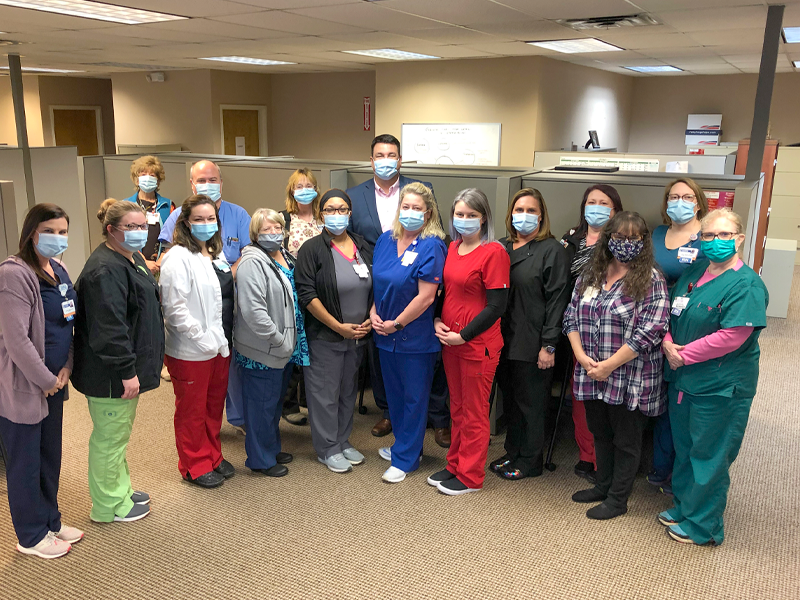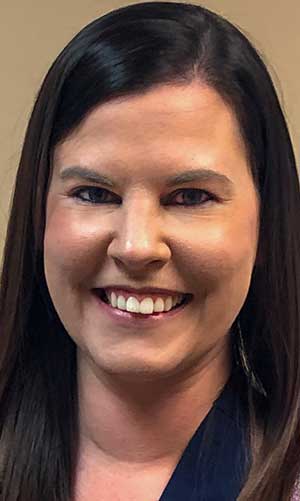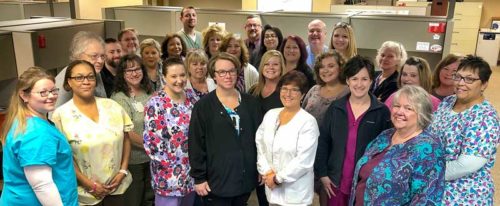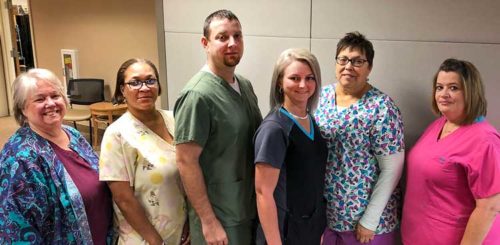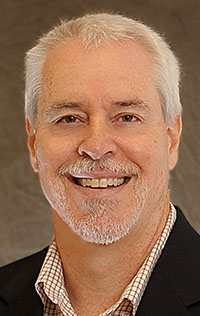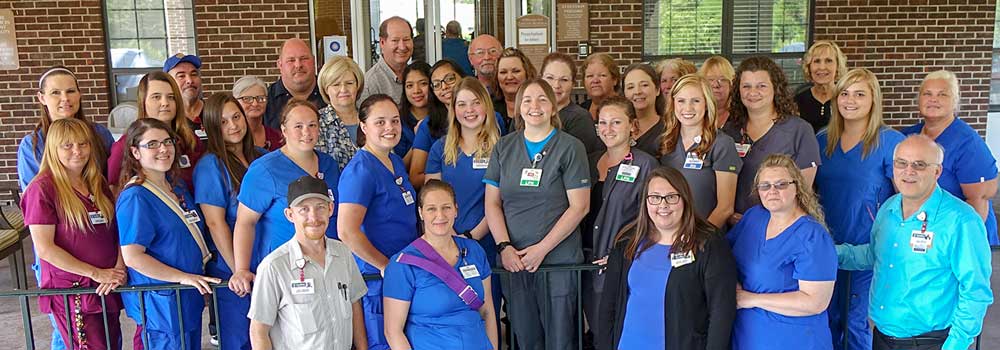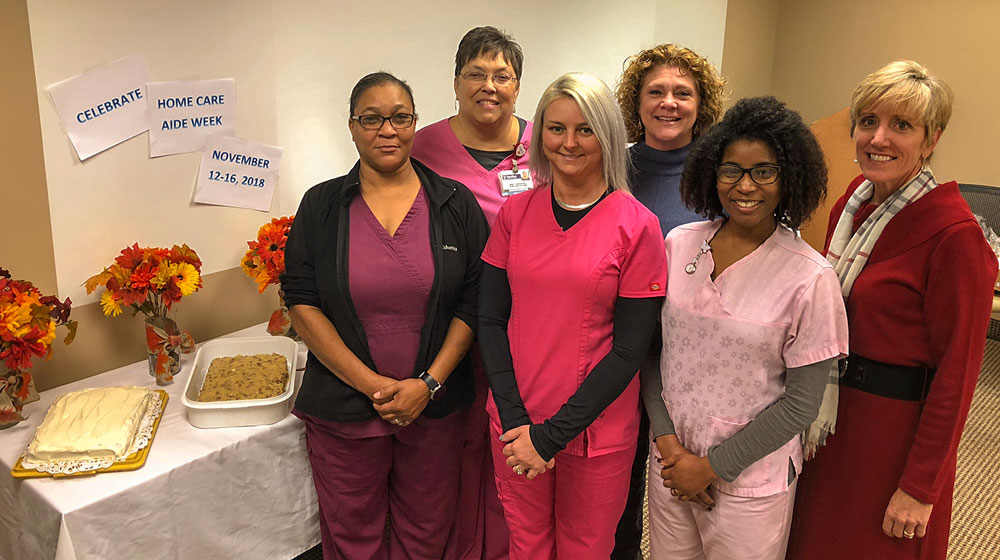During November, the National Association for Home Care (NAHC) encourages all communities to celebrate National Home Care and Hospice Month, honoring the millions of nurses, home care aides, therapists and social workers who make a difference for the patients and families they serve.
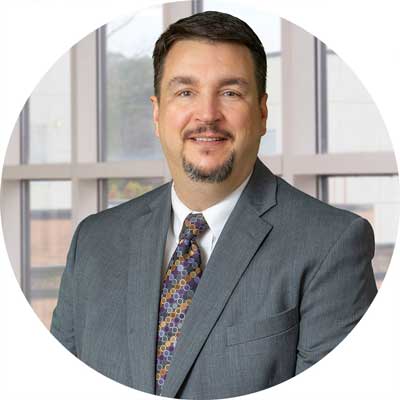
“At Hamilton Home Health, we strive to offer personalized care in the familiarity of the patient’s own home,” says Blake Nelson, director of Hamilton Home Health. “Our dedicated team will tailor the plan of care to promote recovery and enhance the patient’s quality of life. In the case of Hamilton Home Health, a patient is not only receiving medical assistance but gaining a partner in the journey toward better health.”
Home health care is medical care that is appropriate for people suffering from chronic illness or recovering from acute injury or illness who need skilled care to remain at home. Services include medication management, wound care, physical therapy, occupational therapy and other skilled services provided by licensed individuals. Some patients qualify for additional services such as home health aides and medical social workers when necessary to support skilled services.
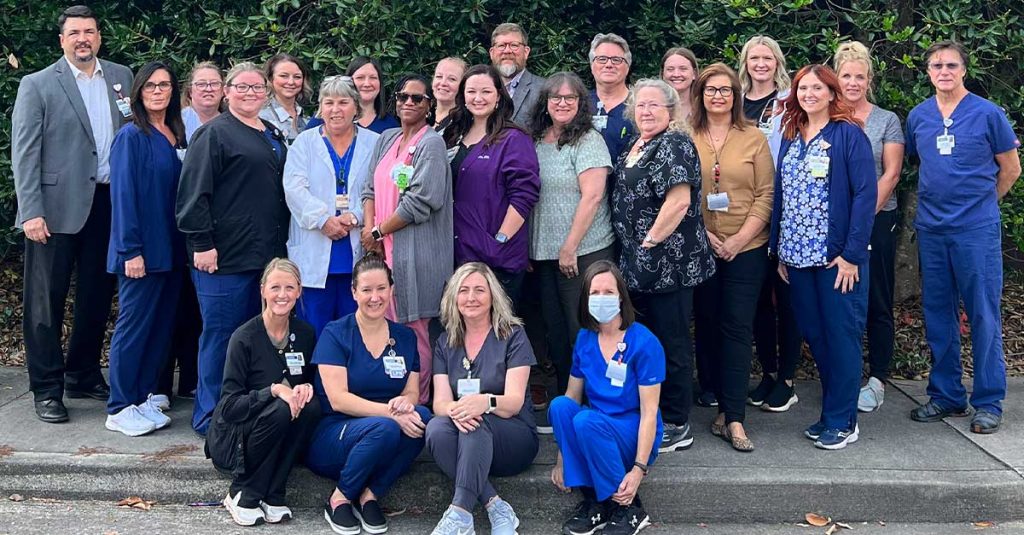
Care requires a physician’s order and requires that the patient be under the care of a physician. Most insurers also require that the patient be homebound, meaning the patient only leaves home infrequently and it is very difficult to do so.
Home health care can be mistaken for personal or companion care (or non-medical care), which includes transportation, errands, light housekeeping, meal preparation and assistance with activities of daily living. Private sitters and some private and government agencies provide this type of care.
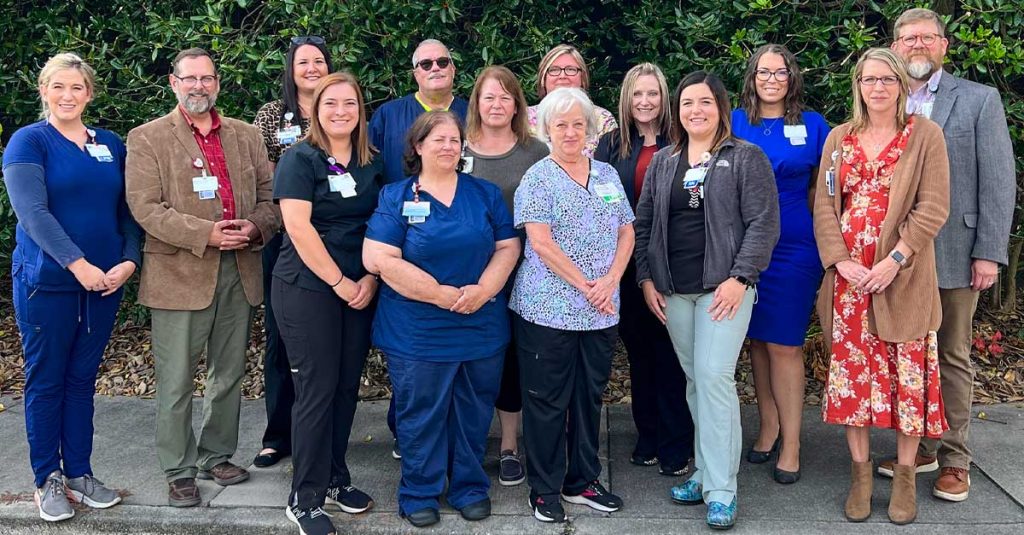
When a disease process has become terminal and patients and families are ready to shift the focus of care from curative treatment to comfort care and symptom control, hospice care allows patients to remain in familiar surroundings at the end of life. Hospice care provides support and education to the patient’s family during the patient’s time on hospice and for a specified time after the patient’s death.
Hospice provides four levels of care, including routine home care, respite care, general inpatient care and continuous home care. These levels are determined based on the patient’s needs and can be provided in the home, in a nursing home or assisted living facility or, in some cases, in the hospital.
“Choosing to receive hospice care does not mean you are giving up hope or that death is imminent. Hospice care allows the patient to live every day to the fullest,” says Misti Bowers, director of Hamilton Hospice. “Utilizing a hospice program allows the patient and their loved ones to voice their opinions and concerns while being a part of creating their own care plan. Hospice focuses on comfort, dignity and emotional support.”
Utilizing a hospice program allows the patient and their loved ones to voice their opinions and concerns while being a part of creating their own plan of care. Hospice focuses on comfort, dignity and emotional support.
Hospice is appropriate when patients with a life-limiting illness discover that continued aggressive disease treatment is no longer effective, beneficial or desired.
“This type of care not only ensures that symptoms are managed and medications and equipment are provided, but it also supports families and assists them in dealing with the emotional and physical strain that can accompany end-of-life situations,” Bowers says.
Hospice care is a benefit of Medicare and most private insurers as long as the patient continues to meet the necessary criteria. The benefit pays for all care, equipment (including hospital beds and oxygen) and medications associated with the patient’s terminal diagnosis. Hamilton Hospice is committed to caring for all patients, regardless of an individual’s ability to pay.
Patients may revoke their hospice benefit at any time if they feel the need to resume more aggressive care. Patients can also re-enroll in hospice as their condition worsens.
For more information, please visit hamiltonhealth.com/services or call Hamilton Home Health at 706-226-2848 or Hamilton Hospice at 706-278-2848.
Home health and hospice are part of the continuum of services that are provided by Hamilton Health Care System, which also includes hospital care, cardiovascular services, rehabilitation and wellness, ambulatory infusion, cancer care, behavioral health, long-term care, wound care and others.
